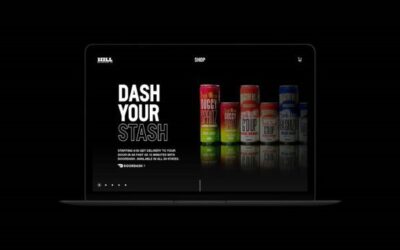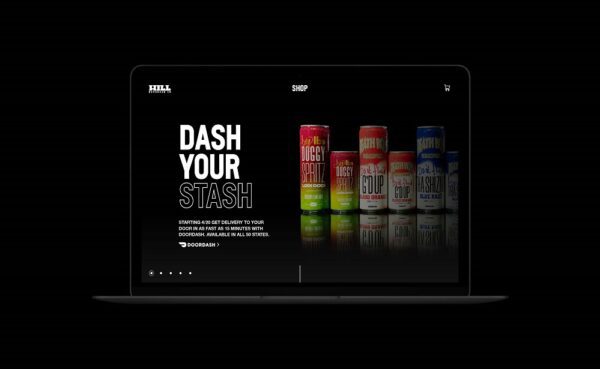Are Deskless Retail Workers in a Tech Drought?


Digitization has overhauled much of the business world, and in departments like finance or marketing you’d find most employees are hooked on apps that serve up-to-date information on the status of their programs and connect them with others on their team for real-time collaboration. But in many places across the retail ecosystem, an employee’s day to day can still feel very manual and their connection back to others in the business is irregular at best.
We recently asked workers how tech and data access impacts their work experience and found that tech gaps are prevalent, especially for those that don’t work at desks, for example employees stocking shelves or greeting customers on the floor.
The findings show those who don’t work at desks are more likely to lack the tech and data they need to contribute to their organization. Retail can’t escape this reality; it has the second largest deskless workforce in the world, trailing only agriculture. The majority (62%) of workers say access to tech to help them do their job would make them happier at work, yet desk workers are almost twice as likely as their peers in deskless roles to say that they have more access to software than others in their company.
For retail leaders, these numbers tell a story of an underutilized workforce eager to contribute but mired in inefficiency. Workers said that if they were empowered with the proper software to help them with time-intensive tasks, on average they could save almost an hour and a half of time each day. That adds up to more than $6.5 billion that U.S businesses could recoup each week with the proper technology in place.
Study respondents in the retail industry explained some of the pain points they experience with their current access to technology and data, saying things like “it is completely old and outdated,” “we sell more updated technology then we use,” or that the company is “slow to roll out apps we need.” Just 43% of all workers say that their company adopts new technology consistently — and only 13% get new technology as soon as it’s out.
Incorporating new technology can require a significant investment so it’s not shocking that organizations are trying to hold onto legacy systems, but losing out on talent retention and strategic insights from deskless workers is far more expensive and inefficient in the long run. Compared to their counterparts, deskless workers share strategic ideas less often, and more than a quarter (28%) feel held back at work because of inferior tech tools and information.
Nearly one-quarter (24%) of workers report high turnover at their companies, but that number shoots up to 71% at organizations where workers feel they need more tech tools. This correlates with reports that half of deskless retail workers are considering quitting, with one of the top three reasons being a lack of meaningful work. We found that more than 70% of employees who say they have the perfect amount of tech tools plan on staying at their company long-term.
The retail sector is investing heavily in technology applications for customers — from virtual dressing rooms to paying by palm — but is the same attention being given to underserved employee groups? Are managers putting timely data around customer expectations, product availability and professional progress in the hands of deskless workers to help increase productivity and boost employee engagement?
Managers and upper-level leaders are not the only ones who can benefit from access to information. If data was shared more freely — in both directions — with workers at every level, imagine how it could improve cross-functional collaboration and illuminate managerial blind spots. The deskless workers also have valuable insight into local trends impacting their business that they could be sharing back with their desk-bound peers.
Savvy retail leaders will take an honest look at how deskless workers’ access to data and technology will help them contribute to the company in more meaningful ways and increase their ability to provide strategic ideas to executives. Currently, nearly one-third (31%) of workers feel uninformed about their company’s overall strategy. When deskless retail workers were asked what information they would need in order to do their job more effectively, common responses included things like “customer experience data,” “data for inventory and logistics,” “details on targets and KPIs,” “knowing where my work fits into the company plan,” “information from other locations,” and more.
Some retailers are leading the way in this effort. One giant auto parts retailer swapped Ethernet-tethered laptops for a mobile app that employees carried with them down aisles of their stores. As a result, the company saw a surge of in-store productivity. Elsewhere, a regional supermarket chain moved the database for 4,000 of its top-selling products to an app that both employees and suppliers could access. Out-of-stock inventory problems plunged by 60% — even during the height of the pandemic.
This next age of retail should focus on how organizations can capture the value and power of every employee. Today’s workforce is full of digital natives who are looking for the same ease of use and actionable insights that they already get in the consumer mobile apps they use for everything from ordering groceries to booking reservations. Data analytics tends to be one of the fastest-growing pieces of an organization’s IT budget, but companies that aren’t using applications and technology to put that data directly in the hands of their workforce are not only minimizing the return on that investment — they’re shortchanging their employees and customers.
Ben Schein has 20 years of experience leading business intelligence (BI), analytics and finance teams. As SVP of Product, he oversees Domo’s Product Management and UX teams and guides the overall product roadmap. Schein also leads Domo’s Strategic Architecture Group (SAG), which advises on architectural patterns for complex implementations. He is a passionate advocate of sparking the fire of data curiosity and innovation for Domo customers across the globe. Prior to Domo, Schein worked at Target Corporation where he led merchandising analytics and enterprise BI capabilities within the Enterprise Data Analytics and BI (EDABI) Center of Excellence.











